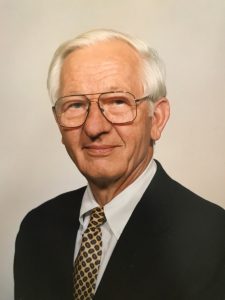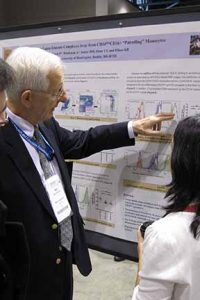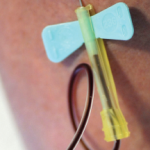Mart Mannik, MD, professor emeritus, Division of Rheumatology at the University of Washington (UW), passed away on Wednesday, Aug. 22, 2018.
Dr. Mannik was born in Estonia and came to the U.S. at age 12 as a refugee from World War II. He received his medical degree from Western Reserve University School of Medicine in Cleveland. His post-graduate training included residency training at Massachusetts General Hospital in Boston, a guest investigator position in the laboratory of Henry Kunkel at Rockefeller University in New York and a clinical associate position at the National Institute of Arthritis and Metabolic Diseases, Rheumatology, Bethesda.
During the 34 years he served as division head at UW, Dr. Mannik made a major impact. Under his leadership, the number of faculty increased from two to 12, and UW faculty led research initiatives in gout, rheumatoid arthritis (RA), systemic lupus erythematosus (SLE) and associated diseases.
He played a commanding role in shaping rheumatology practice in the Northwest U.S. As the program director and primary investigator for an NIH-supported research training grant in rheumatology, Dr. Mannik supervised or personally trained more than 100 rheumatologists, some of whom subsequently became division heads at other institutions.
One of those leaders, Richard Pope, MD, the Solovy/Arthritis Research Society Professor of Medicine (Rheumatology) at Northwestern University, says, “Over the two years of my fellowship, Mart taught me lessons on how to approach research that have served me well throughout my career: how to ask the over-riding question, to develop hypotheses, to set up experiments to address the hypotheses, to perform the experiments, to analyze the data and how to put it all together. Along with David Teller from the Department of Chemistry, we characterized the molecular mechanism for self-association of IgG rheumatoid factor.
“I have always been thankful to Mart for the way he formed my research career,” Dr. Pope continues. “As chief of the Division of Rheumatology at Northwestern University for 27 years, I imparted these same approaches to my colleagues who were in the forefront of the new focus on clinic research in rheumatology. Their skills were developed through a P60 center grant, which we had for over 25 years, even after I stepped down. Today, many successful investigators in clinical, translational and basic research focused on rheumatology have benefitted from the lessons taught by Mart. His legacy continues to be passed on by today’s leaders.”




